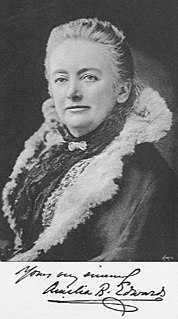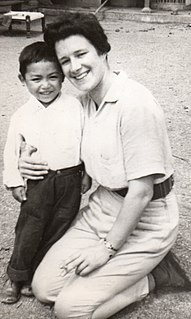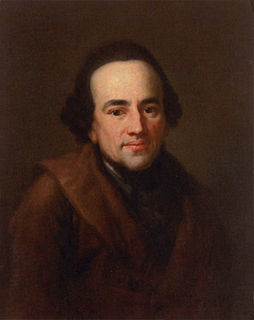A Quote by Samuel Johnson
It is true that of far the greater part of things, we must content ourselves with such knowledge as description may exhibit, or analogy supply; but it is true likewise, that these ideas are always incomplete, and that at least, till we have compared them with realities, we do not know them to be just. As we see more, we become possessed of more certainties, and consequently gain more principles of reasoning, and found a wider base of analogy.
Related Quotes
... one of the main functions of an analogy or model is to suggest extensions of the theory by considering extensions of the analogy, since more is known about the analogy than is known about the subject matter of the theory itself ... A collection of observable concepts in a purely formal hypothesis suggesting no analogy with anything would consequently not suggest either any directions for its own development.
I think it's important to reason from first principles rather than by analogy. The normal way we conduct our lives is we reason by analogy. [With analogy] we are doing this because it's like something else that was done, or it is like what other people are doing. [With first principles] you boil things down to the most fundamental truths…and then reason up from there.
It may be said of some very old places, as of some very old books, that they are destined to be forever new. The nearer we approach them, the more remote they seem: the more we study them, the more we have yet to learn. Time augments rather than diminishes their everlasting novelty; and to our descendants of a thousand years hence it may safely be predicted that they will be even more fascinating than to ourselves. This is true of many ancient lands, but of no place is it. so true as of Egypt.
It is natural to men to judge of things less known, by some similitude they observe, or think they observe, between them and things more familiar or better known. In many cases, we have no better way of judging. And, where the things compared have really a great similitude in their nature, when there is reason to think that they are subject to the same laws, there may be a considerable degree of probability in conclusions drawn from analogy.
Could we bring ourselves to feel what the first spectators of an Egyptian statue, or a Romanesque crucifixion, felt, we would make haste to remove them from the Louvre. True, we are trying more and more to gauge the feelings of those first spectators, but without forgetting our own, and we can be contented all the more easily with the mere knowledge of the former, without experiencing them, because all we wish to do is put this knowledge to the work of art.
Principles always have natural consequences attached to them. There are positive consequences when we live in harmony with the principles. There are negative consequences when we ignore them. But because these principles apply to everyone, whether or not they are aware, this limitation is universal. And the more we know of correct principles, the greater is our personal freedom to act wisely.
perhaps there is something more than courtesy behind the dissembling reticence of childhood. ... Most artists dislike having their incomplete work considered and discussed and this analogy, I think, is valid. The child is incomplete, too, and is constantly experimenting as he seeks his own style of thought and feeling.
When I tell you not to marry without love, I do not advise you to marry for love alone: there are many, many other things to be considered. Keep both heart and hand in your own possession, till you see good reason to part with them; and if such an occasion should never present itself, comfort your mind with this reflection, that though in single life your joys may not be very many, your sorrows, at least, will not be more than you can bear. Marriage may change your circumstances for the better, but, in my private opinion, it is far more likely to produce a contrary result.





































